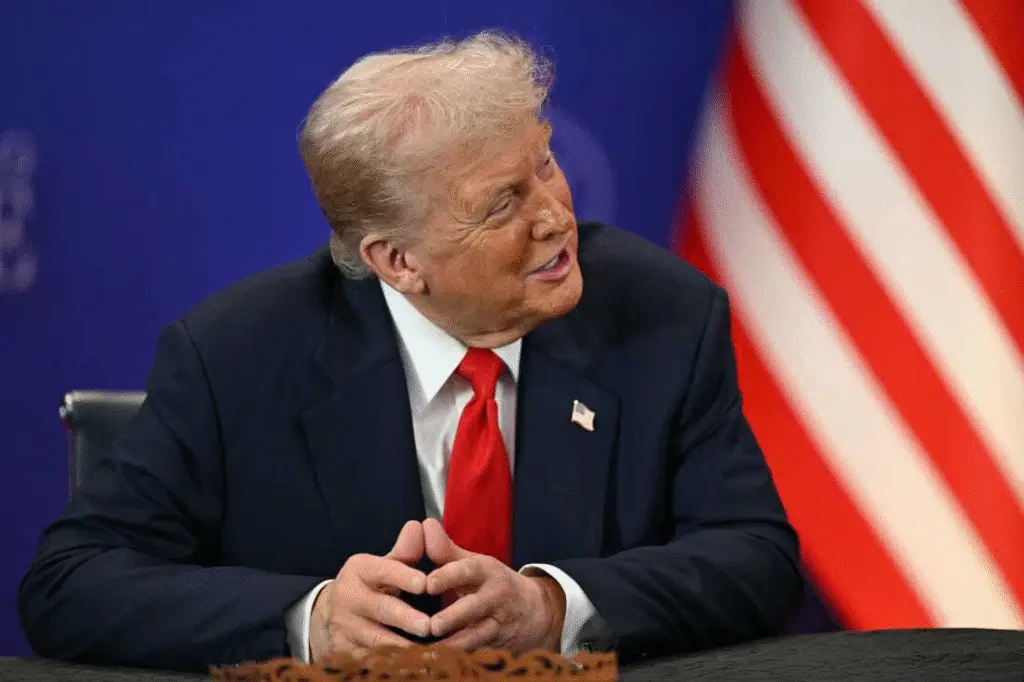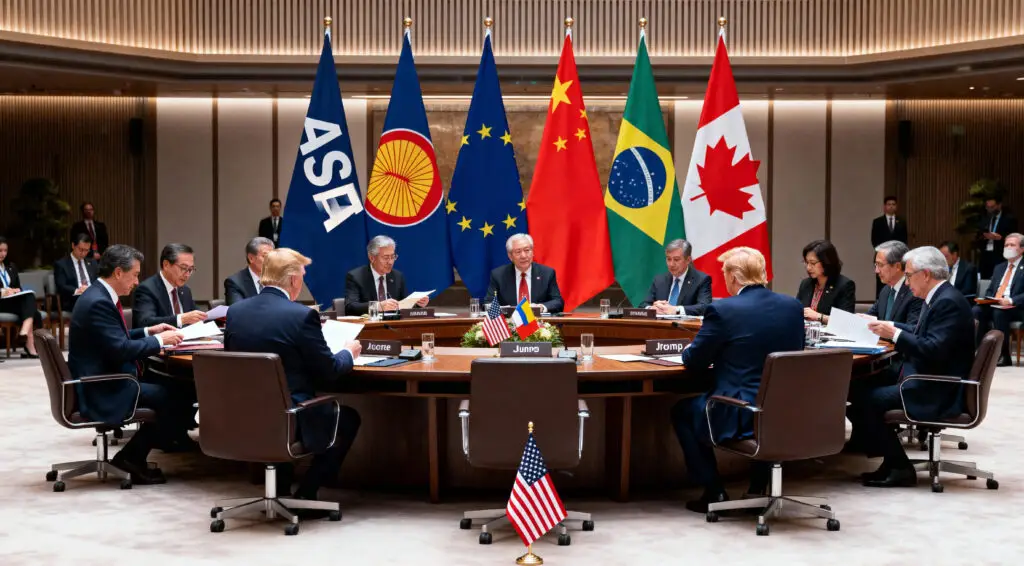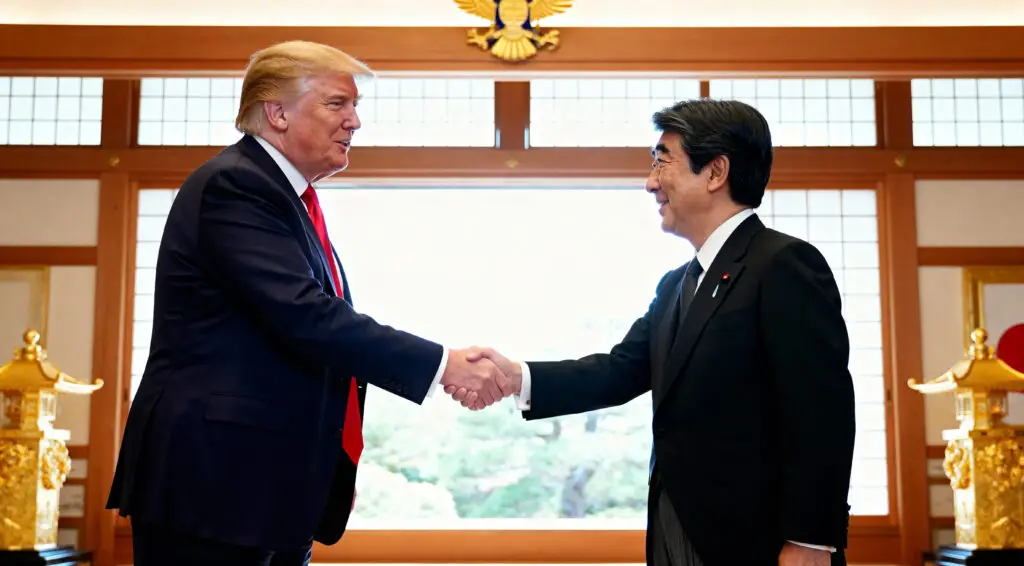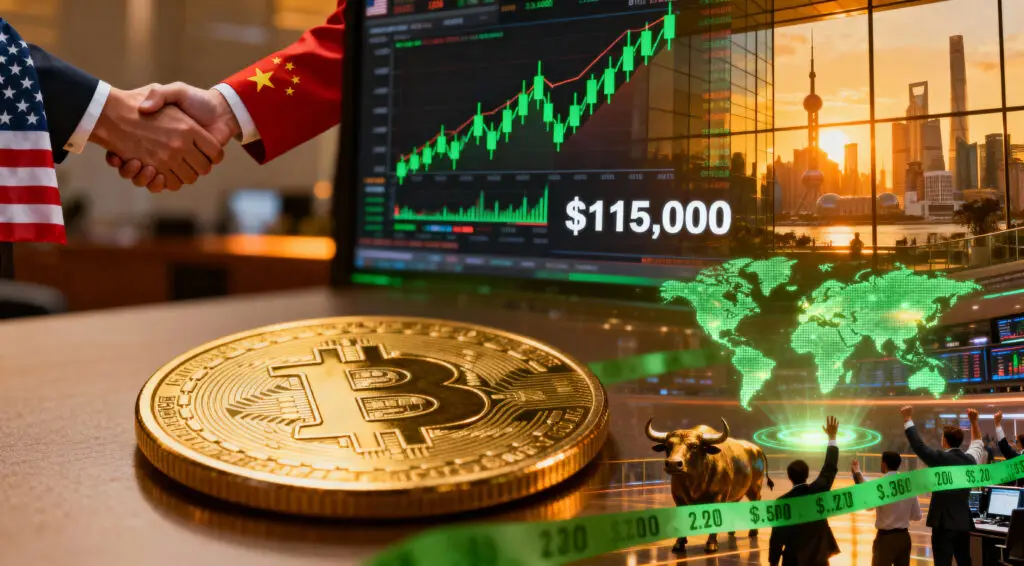Global Leaders Rally to Sustain Trade Dialogue After Trump’s Exit
World leaders convened in Kuala Lumpur, Malaysia, to strengthen economic and trade ties following U.S. President Donald Trump’s departure from the ASEAN summit. The conference was held amid concerns about U.S. tariffs and aimed to facilitate cooperation among other countries.
Trump had managed limited success in Southeast Asia, including a longer truce between Thailand and Cambodia and four trade framework agreements. However, his heavy tariffs on Cambodia, Malaysia, Thailand, and Vietnam remained a tense issue.

Source: NPR
Trump’s Departure Leaves Global Leaders to Forge New Alliances
Other major countries, including China, the European Union, Brazil, Canada, and the ASEAN grouping, have taken the lead in diplomacy since Trump’s early departure. These countries are now in charge of measures to make trade networks more varied, keep markets stable, and lessen their reliance on U.S. trade policy.
ASEAN leaders said again that they are committed to free trade and stability in the region, even if there are still disagreements over how to balance ties with Washington and Beijing. Officials stressed that Southeast Asian countries must keep working together, no matter what changes the U.S. makes to its protectionist policies.
Rising Trade Tensions Add Pressure to Global Economies
Global concerns over trade tensions between the U.S. and China are increasing, affecting Asia and Europe. The Trump administration’s increased taxes on Asian goods have disrupted supply chains and made industries like semiconductors and cars more expensive.
Asian and European leaders are aiming to strengthen the Regional Comprehensive Economic Partnership (RCEP), the world’s largest trading bloc, to balance U.S. trade policy and strengthen the region, which accounts for nearly 30% of the global GDP.
Recommended Article: US Warship Arrival in Caribbean Sparks Maduro War Accusations
China Takes Center Stage in Trade Diplomacy
After Trump’s departure, China’s Premier Li Qiang emphasized free trade and regional integration. Beijing aims to strengthen commercial ties and counter U.S. tariffs on Chinese goods.
European Council President Antonio Costa advised China to maintain “fluid and predictable supply chains” amid concerns over China’s stricter export limits on rare earth minerals. Costa also urged Beijing to play a larger role in ending the Russia-Ukraine crisis, highlighting the importance of maintaining global peace through trade stability.
Brazil Pushes for Fairer Trade Terms With Washington
President Luiz Inácio Lula da Silva of Brazil said that his meeting with Trump before the U.S. president left the country “guaranteed progress” toward a new trade pact between the two countries. After Washington put 50% tariffs on Brazilian exports, which hurt agricultural and industrial items the most, Lula appealed for better terms.
Lula’s comments made it clear that Latin American countries want to be more independent in global commerce. They want to keep their connections with the U.S., China, and ASEAN economies balanced so that they don’t rely too much on any one partner.
ASEAN States Reaffirm Commitment to Open Trade
ASEAN leaders, who are from 11 member states, said again that they will work to make commerce and the economy in the region more resilient. Leaders talked about the problems that come with the U.S.-China competition, but they also stressed that Southeast Asia has to work together to keep prosperity and stability going.
The ASEAN–U.S. Trade and Investment Facilitation Arrangement was mentioned as a critical way to keep talking to Washington, even as the economies of the area look for ways to work more closely with Japan, South Korea, and India.
Focus Shifts to RCEP, Energy, and Supply Chains
The ongoing talks will focus on implementing the Renewable Energy Corridor (RCEP), maintaining a safe supply chain, and collaborating on energy issues in the Asia-Pacific region. As nations adapt to global economic changes, there will be a greater emphasis on renewable energy and digital trade frameworks.
Trump’s next meeting with Chinese President Xi Jinping in Japan is expected to raise global markets’ interest in the potential easing of tariff tensions or the development of new trade frameworks.
The World Watches for Clarity Amid Trade Uncertainty
The 2025 ASEAN Summit will be a turning moment for global trade realignment since the U.S. is putting up trade barriers and Asian economies want more independence. The question today is whether ASEAN, China, and the EU can work together to stabilize the world economy even while there are political tensions and trade obstacles rising.
One delegate put it best: “The world can’t wait for Washington.” “We must all move forward together, or we risk falling behind.”























